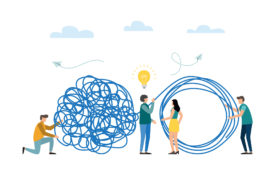-
What If Friendship, Not Marriage, Was at the Center of Life?
... In the past few decades, Americans have broadened their image of what constitutes a legitimate romantic relationship: Courthouses now issue marriage licenses to same-sex couples, Americans are getting married later in life than ever before, and more and more young adults are opting to share a home rather than a marriage license with a partner. Despite these transformations, what hasn’t shifted much is the expectation that a monogamous romantic relationship is the planet around which all other relationships should orbit. ... A few decades after the erosion of romantic friendship began, Americans’ conception of marriage shifted.
-
Forget Halloween. Children Are Frightening Year-Round.
Some parents don’t need spooky stories or horror movies. The real terror already lives within the walls of their homes. To be clear, I’m talking about little children. Kids can be incredibly eerie. They seem innocent but sometimes appear highly sophisticated. And when they communicate, it’s often in such a simple, uninhibited way that many adults find it unnerving. Especially when their children are talking about something unpleasant. ...
-

Playing With Fear: Haunted Houses and Recreation
Haunted houses, horror movies, and ghost stories can provoke chilling delights, provided the fear they evoke remains in a “Goldilocks zone” that is neither too terrifying nor too tame. New research connects this sweet spot
-

Path to My Postdoc: Creating Collaborative Connections
Researchers shared their experiences with the postdoctoral process, including applications, securing funding, and the value of publications.
-

Haunted House Researchers Investigate the Mystery of Playing With Fear
New research connects a sweet spot of recreational fear to a telltale range of heart rate fluctuations, shedding light on the mind-body connection between fear and fun.
-

New Research in Psychological Science
A sample of research on how trust may increase exposure to infection, wisdom of the crowd, aging and memory for distractors, social distancing motivated by empathy, using fake-news to enhance memory for facts, children’s cognitive reflection and understanding of science, and choice-induced preference in infancy.

